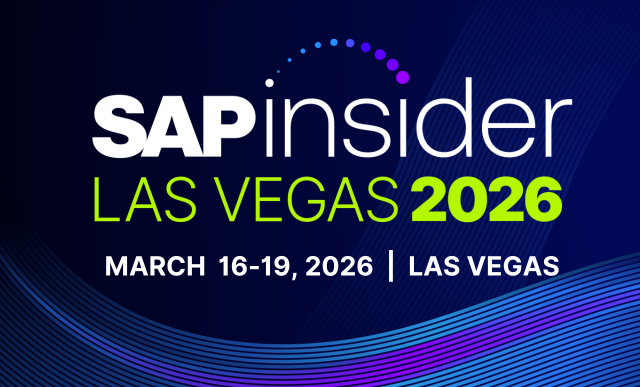APIs Make AI Agents Hype a Reality
Meet the Authors
Key Takeaways
-
The latest advancements in ERP technology are driven by AI agents, with major companies like Microsoft, Salesforce, and SAP integrating these agents to automate complex business processes through machine learning and natural language processing.
-
SAP's approach to AI agents is more nuanced; while the company showcases AI agents as part of its Joule AI copilot, it focuses on integrating these capabilities seamlessly rather than heavily marketing distinct AI agent products.
-
Data integration remains a critical challenge for organizations implementing AI solutions, with legacy data being a significant obstacle. However, AI-driven no-code solutions, such as those from Precog, can enhance data integration and compatibility with APIs, facilitating the adoption of AI technologies.
The last quarter in ERP technology has been defined by AI agents. Microsoft, Salesforce, Boomi, Celonis, ServiceNow and more have all decided that the future is agentic with newly-announced AI agent releases – imagine ChatGPT on top of an ERP layer where agents mimic human actions, automating complex business processes. Powered by machine learning, large language models (LLMs), natural language processing (NLP), and neural networks, AI agents can operate independently or with human guidance to achieve specific objectives.
SAP is also in on the act, having showcased AI agents at this year’s TechEd conference as part of updates to its Joule AI copilot offering. But there is a contrast to other vendors – Dan Beck, SAP SuccessFactors President, recently told this writer that “you won’t see SAP marketing a host of different AI agents.”
This was both a refreshing and logical statement, with the SuccessFactors chief pointing out that AI agents are by nature simply a day-to-day element of what defines an AI copilot, working away under Joule’s hood.
Explore related questions
As Mike Corbisiero, Co-Founder and COO of Extract, Load, Transform platform Precog reminds SAPinsider, AI Agents are just another layer of intelligence in an application. SAP customers want AI Agents – they will be built on APIs for their core applications of Financials, HR and ERP. Example implementations for finance are to examine and resolve conflict cases by tackling issues with invoices, credits and payments.
“[Meanwhile] Boomi is adding them to help applications generate better data flows,” he continues. “In these cases the actual AI agent has nothing to do with APIs. However, all of these AI agents rely on data sets which come from various applications so they can build the actual AI agent. All of these applications have APIs as the means for how to pull data from them.”
APIs are the industry standard for how to exchange data – and SAP Insiders need data to build LLMs and AI tools. But as SAPinsider’s recent AI – State of Adoption Report revealed, the biggest obstacles to AI implementation are issues related to legacy data and applications. Data is central to AI applications, and it remains the most significant challenge for organizations when it comes to implementation.
Naturally, ELT solutions can assist here – but AI-driven no-code solutions, such as those offered by Precog, can significantly enhance data integration capabilities as they have over 2000 sources today and allow for rapid auto generation of new connectors in hours instead of the traditional hard coding approaches of the past. Here, AI ensures seamless data integration and compatibility with the latest API updates.
In other words, AI can help SAP Insiders utilize AI offerings ranging across agents, copilots and whatever buzzword-led products appear next from the vendor production line.
What this means for SAPinsiders
The Backbone of AI Agent Success: AI agents depend on data from various sources, and APIs serve as the primary mechanism for extracting and exchanging this data. Mike Corbisiero, Co-Founder and COO of Precog, points out that SAP customers are keen on AI agents that enhance Financials, HR, and ERP functions. Whether resolving invoice disputes or optimizing HR workflows, these AI agents leverage APIs to access relevant datasets. However, the challenge lies in managing legacy data and applications, which remain significant barriers to AI adoption, as highlighted in SAPinsider’s recent AI – State of Adoption Report.
Overcoming Data Integration Challenges with AI-Driven Solutions: Legacy data and complex integrations pose hurdles for AI implementation, but AI-driven no-code solutions, like those from Precog, offer a way forward. With over 2,000 data sources and the ability to rapidly generate new connectors in hours, these solutions remove the burden of traditional hard coding, enabling SAP end users to seamlessly integrate AI capabilities into their ERP environments. By leveraging AI for data harmonization and API management, organizations can unlock the full potential of AI-driven automation without being hindered by outdated systems.
Preparing for an AI-Driven ERP Future: For SAP end users, the evolution of AI agents represents both an opportunity and a challenge. While SAP’s approach ensures a smooth and integrated experience within its ecosystem, organizations must proactively address data accessibility and integration challenges to fully capitalize on AI advancements. As AI agents, copilots, and new innovations continue to emerge, staying informed and adaptable will be key to navigating the future of AI-driven ERP solutions.






